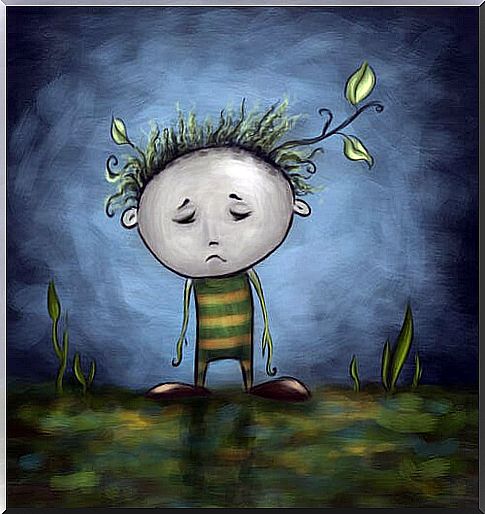Living For Others Without Thinking About Yourself

If we were to count all the thoughts that go through our head during a day, it would be very difficult. We have an average of 70,000 thoughts a day, the majority of which are about our needs. Our happiness, our pleasure, our problems… in short, we think more about ourselves than about other things.
Perhaps an important portion will go to our loved ones. Our partner, children, family, friends. Plans we make with them, quarrels and reflections that differ from person to person.
And, of course, there’s a “small section” left for those nonsensical, banal things like, “Her hair is bad” or “This TV show is making me nervous, turn it off.” The everyday things…

When we spend more time on others than on ourselves
It has been proven that the time your mind devotes to the rest of the world sometimes turns out to be too much compared to how much time you spend on yourself.
Let’s say that sometimes our brains, minds or wills get overwhelmed so that they run out of space because they are already busy with things that have nothing to do with us and over which we have no control.
“Could it be that what I said went wrong?”, “It’s my fault, I should have done it differently” or the best of all: “I’m selfish, because the one time he asks me for help… ”
Negative thoughts of all kinds make us feel bad or at least not good enough for the other person. These are thoughts that are not about us, but about others.
Our ability to confuse our thoughts with reality and to live as if everything our mind tells us is true is impressive.
Educational messages from our youth
The fact is that throughout our lives we are often exposed to educational messages such as “You must share this” or “Be good to others” or “Do everything possible to make others happy”. We are fed these kinds of messages throughout our childhood. It turns out that from a young age these kinds of messages shape our values, which we carry with us later in life, but in reality they are very limiting for adults.
First, they are commands. They are not suggestions. Therefore, it is as if they force us to live a certain way in a certain way. But we are no longer children. We can change, reflect on these commands. Who decides whether we “do it right” or not, if we don’t do it ourselves?
Second , they divide behavior into strict dichotomy. Compare: “You have to share this” (because if you don’t, you are bad), “Be good to others” (because otherwise you are not good, but you are bad) and “Do everything to make others happy (because otherwise you are selfish). There is no room to be “a little selfish”. Everything or nothing. Good or bad. Perhaps the question should be, “Isn’t there a gray area?”
And finally subjectivity. No one has ever written what it means to be “good,” “selfish,” or “altruistic.”

Where is that written line that says what is considered “selfish”? How often are we allowed to take care of ourselves and not others? Is it bad to be selfish?
Think of yourself, be your own priority
The Romans used the word “selfish” to express the “practice of myself.” In the end, everyone has their own version of that expression and we always try to see ourselves as “the good guys”.
We rationalize, we argue, and sometimes we even assume the role of the bad guy and punish ourselves for it, hoping for forgiveness for the great wrong we have committed. And this makes sense. In the end, we are the main character in our own story.
Occasionally we find ourselves locked against our will in a logic that does nothing but hurt us. And we find ourselves giving away time, resources and strength to people who seem to have no other purpose in life than to hurt us.
And we can not stop. We are afraid of the negative consequences. We are terrified of straying from the path they would have charted for us.
Thinking about these messages with peace and tranquility can be the exercise that best relieves our human condition. That little moment after the reflection when it becomes clear to us, “Um, maybe it’s not so bad. Maybe I should take time for myself. Maybe I don’t want to share with everyone now. Maybe I should be selfish…”
Perhaps it is justified to be selfish. Maybe being selfish just means loving ourselves a little bit.









